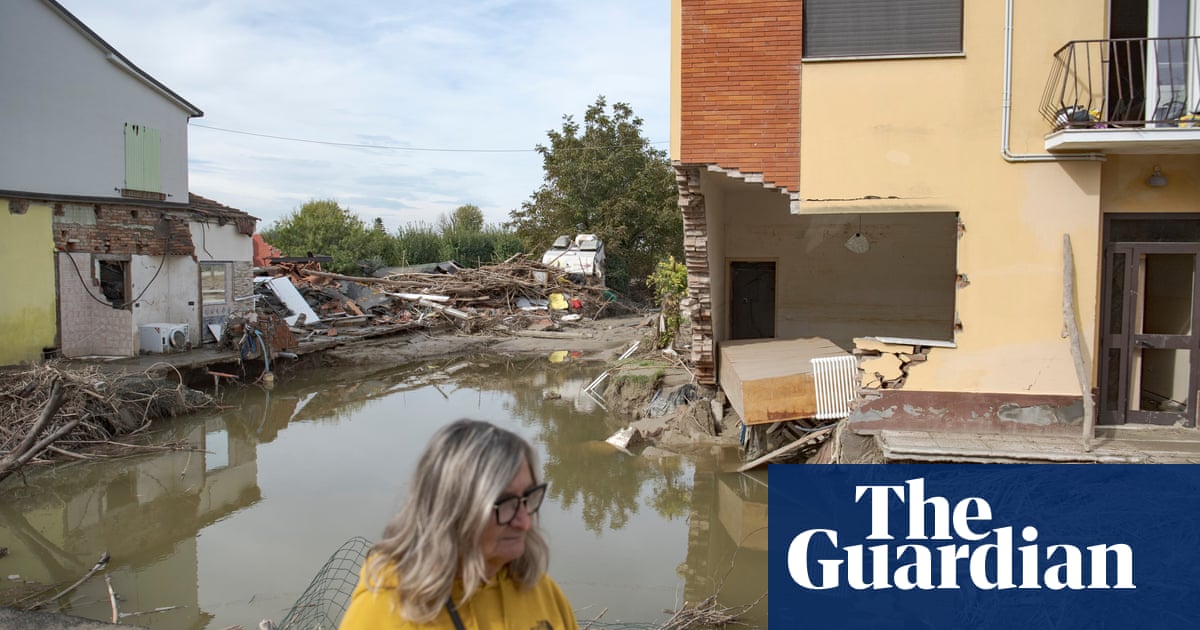It was 2am when the parish priest, Giovanni Samorì, was woken by a phone call from the mayor of Traversara ordering him to start ringing the church bells. The traditional call now forms part of the civil protection procedure deployed by many Italian towns. Its aim: to warn residents of impending calamity.
As torrential rain pounded the village, Samorì sprang into action, a task he compares to “sounding the death knell”. It worked: the evacuation of Traversara’s 480 residents was swift and, despite the priest’s foreboding, there were no deaths.
But, a few weeks on from the flooding of 19 September, when the northern Italian region of Emilia Romagna was struck by its third devastating storm in less than 18 months, the destruction of Traversara is clear. The hamlet, on the banks of the Lamone River about 40 minutes from the regional capital of Bologna, has been all but wiped out.
In its place has come a fraught but urgent debate about insurance coverage for losses from climate-related catastrophes, which until now has remained an unfamiliar concept for most Italians. Italy has become known by scientists as one of Europe’s climate risk hotspots and is beginning to reckon with the widespread implications of extreme weather to livelihoods and the economy.
Currently just 6% of homes are insured against natural disasters, and 5% of businesses. That, says the government, needs to change.
The government has proposed making it obligatory from January for businesses to be insured against natural disasters, a move that has proved particularly unpopular in areas most at risk. There were also hints at extending it to households.



deleted by creator
Me I think it’s a good idea. I’m not an insurance agent and not wealthy.
But when these things happen people need a way to rebuild. They need money. Where else is the cash going to come from?
No cash? Now what?
deleted by creator
yeah I find the limits of insurance come in to play to. building across from me was on fire a few years ago and its still under construction. I had heard because of insurance arguments. I doubt the insurance is paying for all the folks who used to live there to rent a place till construction is complete.